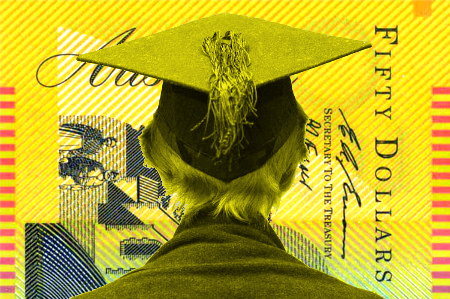Deregulation taking shape as opposition grows louder
 The Federal Education Minister has given the strongest indication that university fees will be deregulated next week.
The Federal Education Minister has given the strongest indication that university fees will be deregulated next week.
Education Minister Christopher Pyne told a private audience this week that he wants to allow universities to compete on price, which he believes will put Australian higher education on the world stage.
“Our best universities have limited prospects of competing with the best in the world, and will be overtaken by the fast developing universities of Asia,” Mr Pyne said in written extracts of his speech at Monash University.
“If universities and colleges were able to compete on price, it would mean ... a greater focus on meeting the needs of students.”
“Achieving this would require government to change the way it treats universities and colleges, and to give them more freedom to do what they do best,” he said.
Opponents say the fee deregulation would force universities to compete with private colleges.
“Allowing Australia's highest ranked universities to jack up their fees so the government can subsidise private colleges is disgraceful,” Greens MP Lee Rhiannon said.
“Particularly in the face of $2.3 billion in cuts to universities that will increase the debt of the most disadvantaged students by up to 50 per cent.”
The Federal Government has reportedly been presented a range of models which attempt to boost Australian university standards while reducing costs to the Government.
“The rest of the world is adapting while Australia is constrained by an out-of-date funding system,” Mr Pyne said.
“The best higher education system in the world would give universities and colleges greater control over their budgets and their capacity to attract and keep students.”
The changes are strongly opposed by a large portion of university students and graduates.
Mr Pyne has been harangued in recent weeks by student protestors, who chased him from this week’s address at Monash.
The Palmer United Party has come out against the potential changes, as have several Nationals MPs from rural areas.
They say that fee increases would push university out of reach for more regional students, for whom travelling to often metropolitan tertiary institutions is already extremely expensive.








 Print
Print